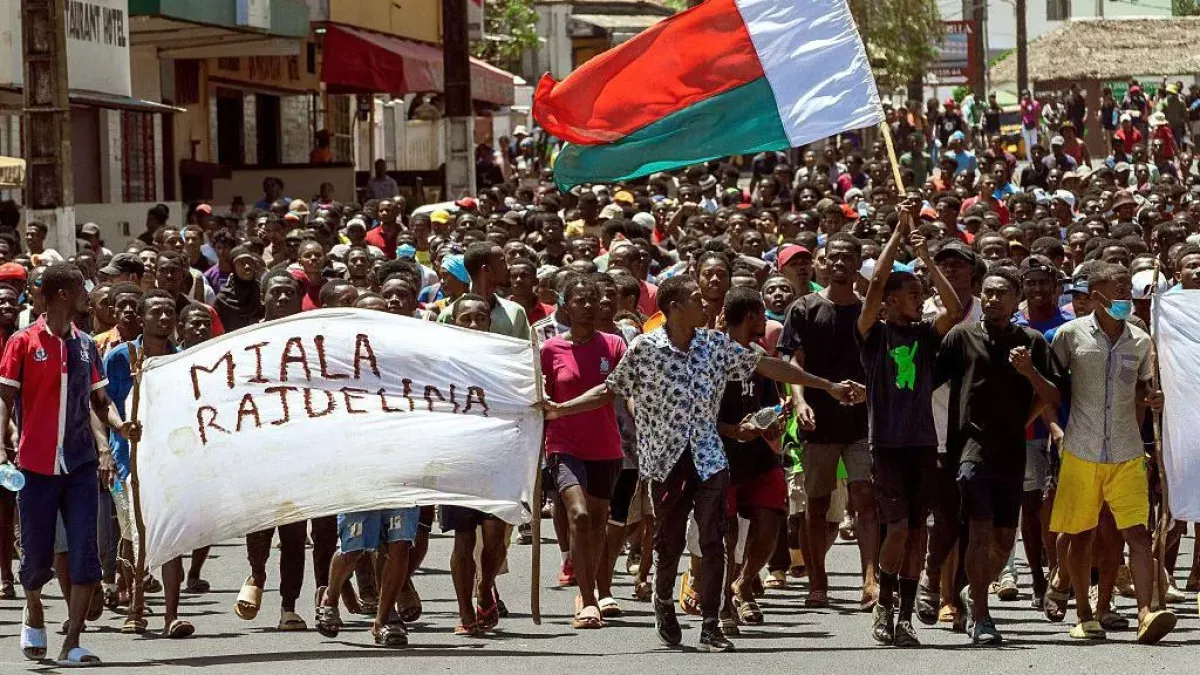Youth-led protests in Madagascar challenge President Rajoelina’s grip on power
Thousands have taken to the streets across Madagascar in the largest wave of protests the country has seen in over 15 years. The demonstrations, sparked by chronic shortages of basic services like electricity and water, have escalated into a major political crisis for President Andry Rajoelina.
The unrest began after the September 19 arrest of two local politicians who had planned a peaceful demonstration in the capital, Antananarivo. Their detention ignited public anger, with many viewing it as an attempt to suppress legitimate dissent. Civil society groups and a youth-led online movement known as Gen Z Mada quickly mobilised, calling for protests that have since spread to eight other cities, BBC writes.
At least 22 people have reportedly been killed and over 100 injured, according to the UN. The Malagasy government, however, disputes those numbers, calling them "rumours and misinformation".
Initially focused on daily hours-long blackouts and water shortages caused by the state utility Jirama, the protests have grown into a broader call for political change. Protesters accuse the government of mismanagement and corruption, particularly in the energy sector.
Armed security forces have been deployed to the streets, and a dusk-to-dawn curfew has been imposed in Antananarivo following incidents of violence and looting, including the torching of the finance ministry.
Demonstrators have been seen waving banners reading “Rajoelina out”, and Gen Z Mada is now demanding the president’s resignation and a reform of key institutions, including the National Assembly.
A Gen Z Mada spokesperson told AFP: “We want the president to step down and the cleaning up of the National Assembly.”
Other demands include accountability for the deaths during the protests and the dissolution of the election commission and top court, following controversial elections in 2023 that were boycotted by the opposition.

President Rajoelina, who came to power initially in 2009 following mass protests and returned to office in 2018, recently sacked his government in an effort to calm public anger. He accused some ministers of “failing to do their job properly” and announced World Bank-backed efforts to address power outages, along with support for looted businesses. However, these moves have done little to ease tensions.
Major labour unions, including the Malagasy Trade Union Solidarity, have now joined the youth-led movement. Prominent opposition leaders, including former President Marc Ravalomanana and opposition figure Siteny Randrianasoloniaiko, have voiced support for the protests in a rare joint statement, rejecting any role in Rajoelina's administration, calling it a "betrayal" of the Malagasy people.
Civil society organisations are now calling for church-led national dialogue to prevent the crisis from spiralling into chaos or civil war.
“Living conditions of the Malagasy people are deteriorating and getting worse every day,” one protester told AFP.
Madagascar remains one of the world’s poorest countries, with 75% of the population living below the poverty line and only a third having access to electricity, according to the World Bank and IMF.
Political analysts warn that the situation could escalate further if the government continues its hardline response.
“The outcome risks political fragmentation, stronger nationalist rhetoric against perceived external interference, and possible economic fallout,” said political scientist and human rights activist Ketakandriana Rafitoson.
Whether the military will continue to support the government or break ranks is seen as a key turning point.
The president’s spokesperson, Lova Ranoromaro, posted on social media: “We do not want a coup d’etat, because a coup d’etat destroys a nation, because a coup d’etat destroys the future of our children.”
Madagascar has a long history of political unrest since independence in 1960, including the 2009 uprising that brought Rajoelina to power for the first time.
By Sabina Mammadli








